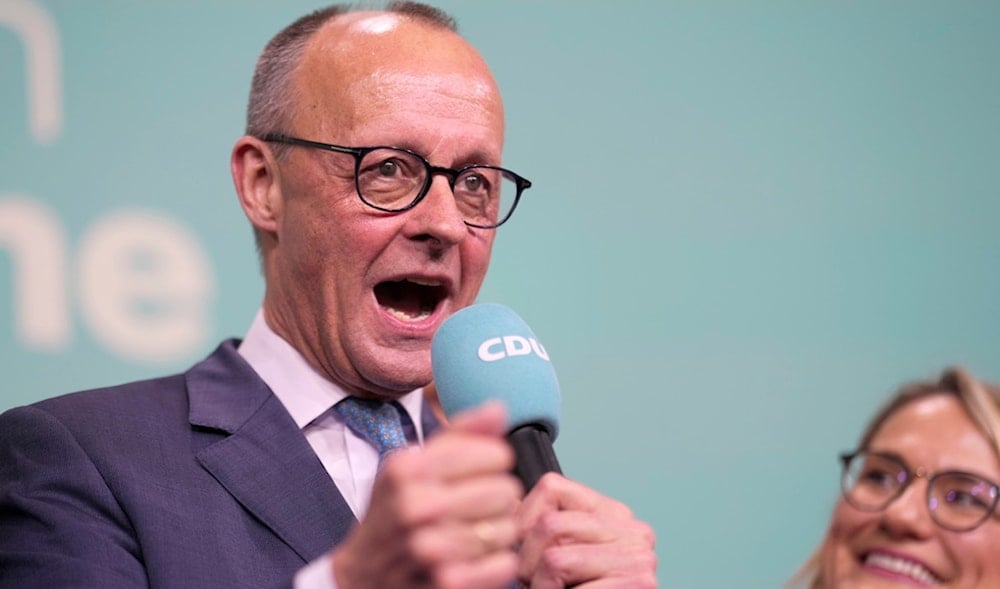Germany's Conservatives win elections, AfD ranks second
The far-right Alternative for Germany (AfD) came in second with 19.5% to 20%, nearly doubling its support compared to the 2021 election.
-

Friedrich Merz, the candidate of the mainstream conservative Christian Democratic Union party, gestures while addressing supporters at the party headquarters in Berlin, Germany, Sunday, Feb. 23, 2025, after the German national election. (AP)
Germany's conservative CDU/CSU bloc, led by Friedrich Merz, won Sunday's elections, securing between 28.5% and 29% of the vote, according to initial TV exit polls.
The far-right Alternative for Germany (AfD) came in second with 19.5% to 20%, nearly doubling its support compared to the 2021 election, based on early figures from public broadcasters ARD and ZDF.
Far-right surge
The election campaign has been heavily influenced by security concerns and social polarization following a series of violent attacks, including Friday's stabbing at Berlin's Holocaust Memorial.
These incidents have fueled public anger over immigration and security policies, boosting the AfD's popularity to 20% in the polls, placing it in second place behind the conservatives.
The AfD has received support from Trump's inner circle, including tech billionaire Elon Musk and Vice President JD Vance.
At an AfD rally in Berlin, party supporter Julian Adrat expressed optimism about the election, saying, "I'm very confident and, no matter how it turns out, we still have room for improvement."
Collapse of Scholz's coalition
The election is being held six months ahead of schedule following the collapse of Chancellor Olaf Scholz's coalition with the Greens and pro-business FDP in November. Scholz's Social Democrats are polling at around 15%, trailing behind both the Conservatives and the AfD.
Merz has ruled out a coalition with the AfD but is expected to seek alliances with the Social Democrats or the Greens to form a government. He declared confidently, "The left is over... There is no left majority and no left politics anymore in Germany."
He pledged to tighten immigration, cut welfare benefits, and restore Germany's influence in the European Union, adding that "Europe must become stronger again and Germany must become more involved in the European Union."
Read more: Scholz criticizes opposition for collaboration with AfD

 2 Min Read
2 Min Read










